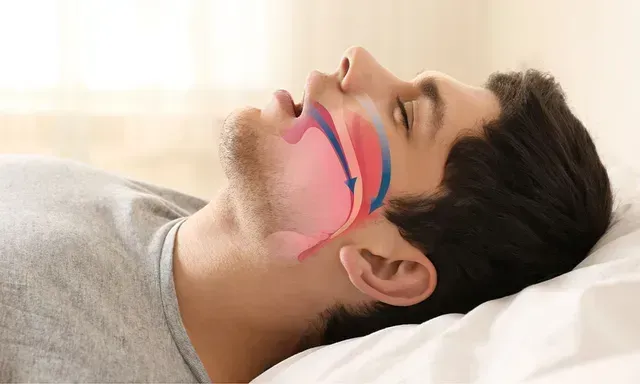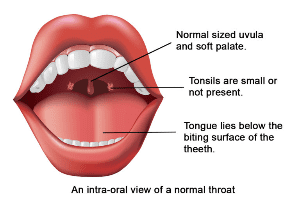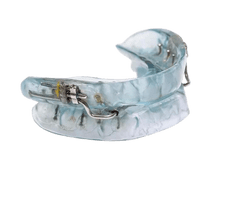Sleep Apnea

Sleep Apnea services offered in Wexford, Monroeville and McMurray, PA
Sleep apnea is a medical condition affecting as many as 22 million in the United States adults with an estimated 80 percent of the cases of moderate and severe obstructive sleep apnea going undiagnosed. In the Pennsylvania Tri-State Area, the team at Pittsburgh Dental Sleep Medicine Network offers outstanding diagnostic and treatment services through their offices in McMurray, Monroeville, and Wexford, Pennsylvania.
Sleep Apnea Q & A

What is Sleep Apnea?
Obstructive Sleep Apnea (OSA) is a treatable disorder in which a person stops breathing many times during the night due to upper airway collapse. The inability to breathe properly can disrupt sleep and is associated with serious health problems such as Stroke, Diabetes, Cardiovascular disorder, and a diminished quality of life. Snoring is a strong indication that OSA may be present.
Sleep apnea is a common disorder characterized by frequent nighttime breathing disruptions. It often goes undiagnosed and can cause significant problems. Sleep apnea can disrupt your health, get in the way of your daily routines, and negatively affect your performance at school or the workplace.
Anyone can develop sleep apnea, including children. Both males and females suffer from this disorder, although men are more than twice as likely as women to develop sleep apnea.
There are several types of sleep apnea, but the most common is called obstructive sleep apnea. This occurs when the muscles in your throat relax so much during sleep that they obstruct your airway. Your body responds by gasping for air, a process that disrupts your sleep.
What are the Symptoms of Sleep Apnea?
Snoring is a primary symptom of sleep apnea, although not everyone who snores has the condition. Additional symptoms include:
- Excessive sleepiness during the daytime
- Abruptly waking up by choking or gasping
- Decreased sex drive
- Nighttime sweating
- Waking with a headache
- Cognitive challenges during the day
- High blood pressure
- Waking with a sore throat or dry mouth
Very often, your sleep partner or family members notice the signs of sleep apnea before you. If you’ve been told you snore loudly, gasp for air, or seem restless during sleep, it may be time to see a specialist.
What Causes Sleep Apnea?
There is no single cause for sleep apnea, but there are conditions that increase your risk level. Any of the following conditions can contribute to the development of sleep apnea.
- Excess body weight
- Chronic nasal conditions
- Narrow airways
- Family history of sleep apnea
- Smoking
Not everyone with these conditions will also suffer from sleep apnea, but understanding what to look for can help you take a proactive stance toward your health.
Sleep and Breathing
During normal breathing, air passes through the nose and the flexible structures in the back of the throat, such as the soft palate, uvula, and tongue. While you are awake, the muscles in these structures hold the airway open. Normally, when you fall asleep, these muscles relax but still hold the airway open and healthy sleep can occur without disruption. Sleep-Disordered Breathing is a term that indicates that breathing is affected due to the sleeping process itself where the throat muscles collapse excessively and prevent adequate breathing. This in turn disrupts sleep creating a condition where both sleep and breathing are dangerously affected. Snoring and Obstructive Sleep Apnea are both considered Sleep-Disordered Breathing Events.
Prevalence of Obstructive Sleep Apnea
- Everyone knows someone with Diabetes or Asthma, but did you know
- that Obstructive Sleep Apnea (OSA) is as prevalent as these common problems?
- Nearly 1 out of 5 adults has at least mild OSA
- 85% of people with sleep apnea remain undiagnosed and untreated
- Almost as many traffic accidents are caused by sleep apnea as DUI
- The risk is 1 to 2 times greater in men than women
- The risk to women greatly increases after menopause
- Pregnancy may be a time of particular risk for women
- OSA is the most common chronic disease in industrialized societies
- 27% of all children are affected by habitual snoring
- 2 to 3% of all children have OSA
- The problem is getting worse due to the trend toward obesity
Quality of Life
Night after night of improper sleep and breathing takes its toll on our quality of life and may include the following:
- Always feeling tired, no energy
- Feelings of depression
- Easily irritated
- Falling asleep at inappropriate times
- Difficulty concentrating
- Forgetfulness
- Waking up with a headache
- Decreased sex drive
- Frustration of bed partner
- Embarrassment
Sleep Apnea in Children
Witnessed apneas occur in approximately 5% of children. Although obesity is an important risk factor in children as it is in adults, symptoms of sleep-disordered breathing will often occur in non-obese children. Studies suggest that a minimum prevalence of obstructive sleep apnea of 2 to 3% is likely, with aTprevalence as high as 10 to 20% in children who snore habitually. Daytime sleepiness is reported in 25 to 30% of children. According to the American Academy of Sleep Medicine, children may present with hyperactivity, inattentiveness, aggressive behavior, irritability, and mood swings when they are sleep-deprived. OSA in children is a serious disorder that may result in health problems as well as behavioral and academic problems.
Tonsils and Adenoids
Large tonsils and adenoids are often responsible for snoring and sleep apnea in children. When large tonsils and adenoids are removed, snoring and apnea resolve in many cases.
Orthodontic Treatment
In many instances, snoring and sleep apnea in children can be caused by dental/facial abnormalities. Often, the upper airway can be widened through orthodontic expansion of the dental arches (a routine procedure done in most orthodontic offices).
Down Syndrome
It has been reported that the incidence of upper airway obstruction may be as high as 31% in children with Down Syndrome.
ADHD
A 2002 study found that children who frequently snore or have sleep disorders are almost twice as likely to suffer from ADHD-like symptoms as those who sleep well.
Sleep Apnea in Pregnancy
According to some researchers, the upper airway of pregnant women narrows in the last trimester of pregnancy. It has been found that if a woman has severe snoring or sleep apnea, the health of both the mother and the fetus can suffer. In pregnant women, blood pressure rises as the upper airway becomes narrower. Data indicate that pregnant snorers have an increased risk for preeclampsia.
Prevention
The shape of the face and dental arches in children is critical to ensuring the development of a properly functioning upper airway throughout life. Situations that tend to cause narrow dental arches or long faces can result in a compromised upper airway in the young child. Often, mouth breathing due to allergies or large tonsils and adenoids can create these harmful anatomical features and lead to snoring and sleep apnea. Sometimes, thumb-sucking or commercial pacifiers may result in narrow dental arches with compromised breathing and sleeping. Some researchers feel that breast-feeding serves to shape the dental arches in infants in a manner which increases the likelihood that the upper airway becomes adequately formed for proper breathing and sleeping.

How Do Dentists Treat Sleep Apnea?
Your treatment path depends on your overall health and the severity of your sleep apnea. In cases where an underlying medical condition might be to blame, treating that condition is often the first step.
Some men and women respond well to a therapy called continuous positive airway pressure, or CPAP.
This involves wearing a mask that directs a steady stream of air into your airway while you sleep.
When CPAP is not an option, or you prefer a different approach, Pittsburgh Dental Sleep Medicine offers oral appliances as a great alternative to CPAP. These devices are worn in your mouth while you sleep, and help keep your airway open. They are noninvasive and nonintrusive, offering a custom fit, and are comfortable to wear.
In rare cases, surgery is the best way to address sleep apnea.
If you’re suffering from sleep apnea, schedule an appointment with Pittsburgh Dental Sleep Medicine online or by phone today at (724)935-6670 to explore treatment options. All of our sleep dentists have achieved Diplomate status with the American Board of Dental Sleep Medicine and have guided more than 19,000 patients through sleep apnea treatment.

